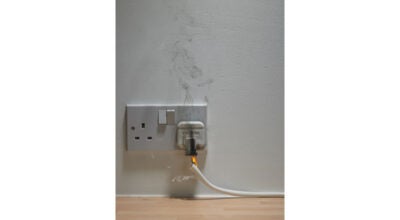When helping hurts
Published 7:24 pm Friday, November 15, 2019
|
Getting your Trinity Audio player ready...
|
By Nathan Decker
“Giving to those in need what they could be gaining from their own initiative may well be the kindest way to destroy people.”
– Robert Lupton in “Toxic Charity”
“I know you meant well, but … .” One of the main reasons I became a pastor was the potential to help people, communities and humanity be better. We all like to help. When we hear about a disaster we open our prayers and pocketbooks to generously give support. When we hear about a death, we dig out our casserole pans or we pick up the phone. When we see someone going through a difficult time, we want to help. BUT, sometimes our good intentions cause harm.
I saw this when I was on a mission immersion trip to Kenya working with Sam Harrell. The purpose of my trip was to look at non-profits and church ministries and reflect on how well we were accomplishing our mission. Several groups did amazing ministries like feeding homeless kids in Nairobi or taking care of abandoned babies who had been born with HIV.
One day we drove deep into the city’s landfill. Along makeshift roads little hovels had been built by the those Africa’s resources and growth had forgotten. The smell was noxious. Everything was dusty, trash covered, and a toxic ooze ran through the ditches. At the top of a hill was a compound where various church ministries came and helped. Over 200 children gathered to be fed, play soccer and receive lessons that would help them grow out of the poverty into which they were born.
A women’s group was there teaching the children about nutrition, and that’s where it went sideways. The elderly woman who had travelled a long distance at great financial sacrifice was speaking through a translator and holding up pictures to inform the children of the kind of diet a body needs to thrive. “Make sure you get lots of fresh vegetables and fruits,” she said loudly pointing to the picture she was holding, “and at least two meals should include some fish or seafood.” Then she held up a picture of a lobster.
Good intentions aren’t enough. We must be thoughtful about how we help. I experienced this recently. Because our community had experienced several deaths, I wrote an article about our communal grief. Within it, I mentioned how things change when death happens. I wrote, “Pizza will not taste the same.” I was trying to help. I wanted to offer God’s gift and presence. Unintentionally, I started rumors that Joe’s pizza was closing down and potentially hurt those who were grieving. I’m hoping that after reading this article, you’ll go to Joe’s pizza and support them by continuing to be a faithful customer.
The pizza still tastes amazing.
If we truly want to help people, we first must interact personally with people. We can’t simply assume we know what someone else is going through in their life. We must not conclude we have the answers and those in need don’t know what they need. We must help in such a way as to not harm those we are helping. This means first getting to know people on a level playing field. God did this in Christ. He came down to be among us, to relate to us, and to empower us to be the Kingdom of God through his grace. If we truly want to help, we need to get to know one another first. After all, it’s what Jesus would do.
“The Word became a human being and lived here with us.”
– John 1:14a
THE REV. NATHAN DECKER is the pastor of High Street United Methodist Church. Contact him at 562-3367.





